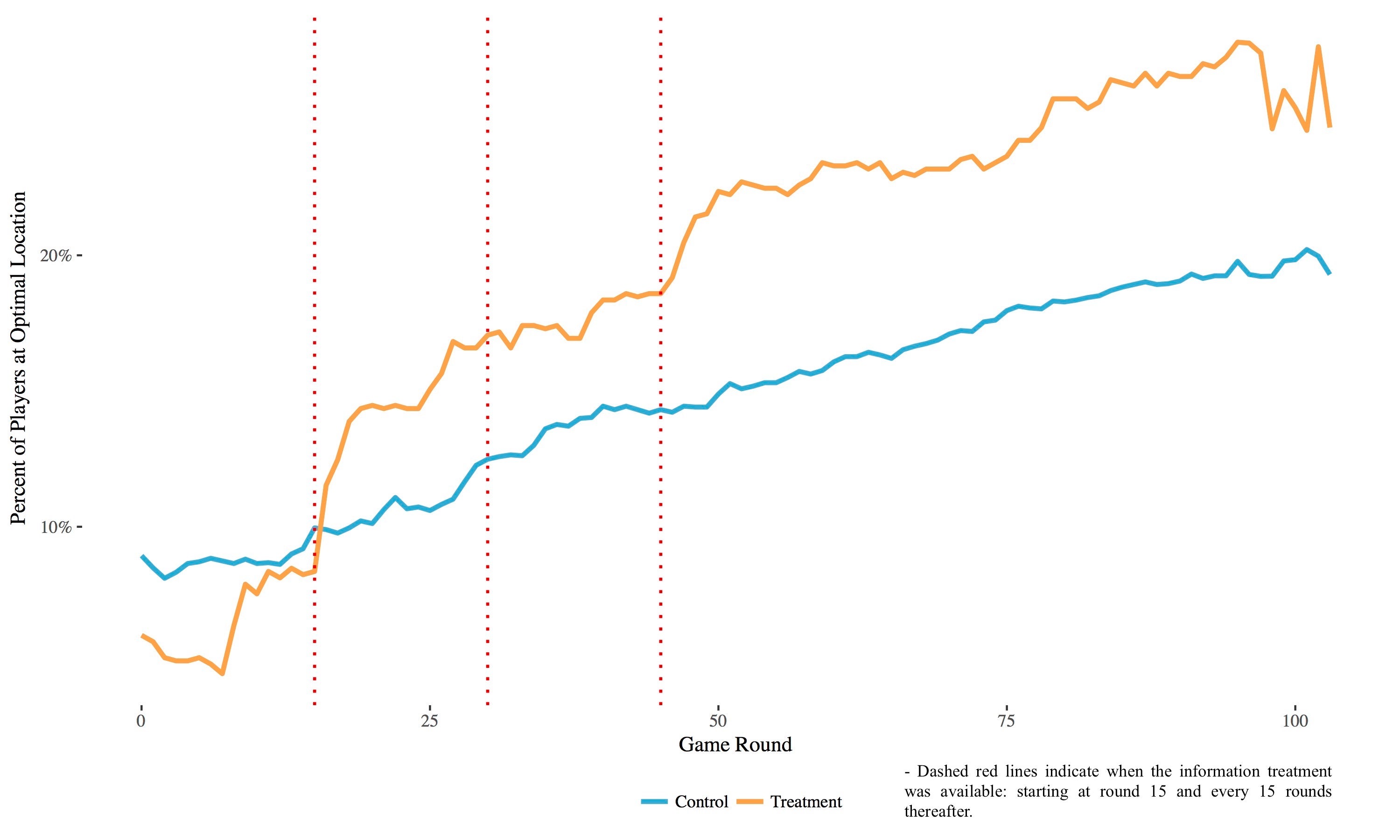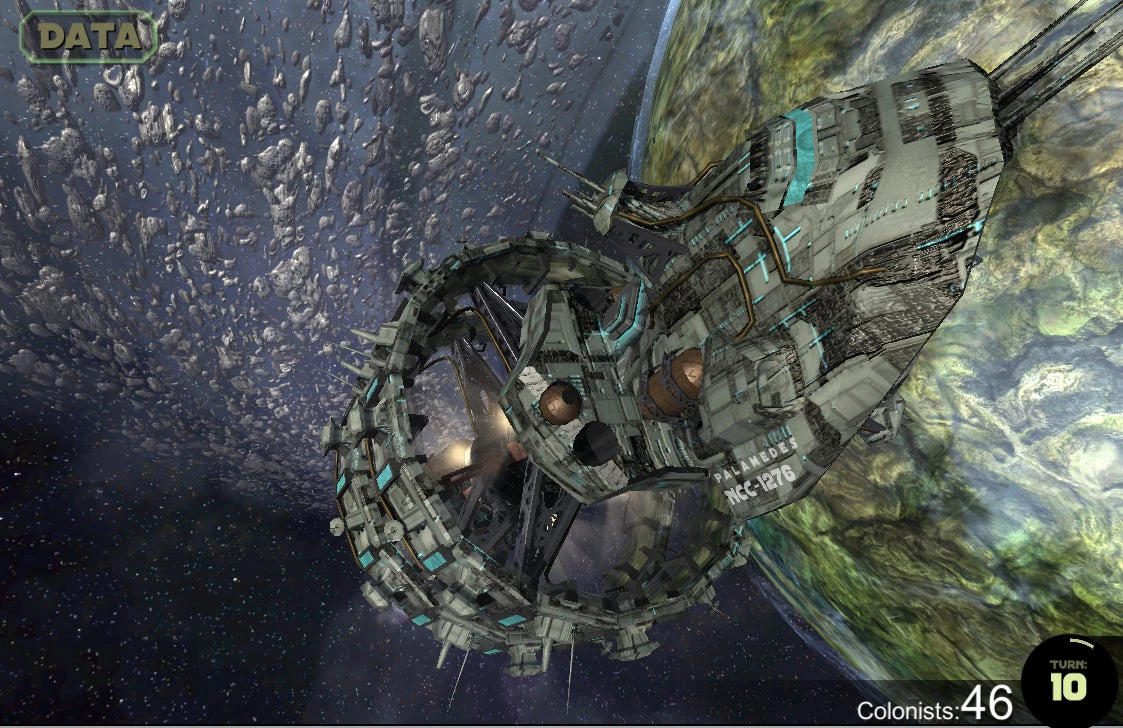Darling you got to let me know // Should I stay or should I go?
One way to escape poverty is to leave it behind. Literally. Moving from a poorer to richer area is so advantageous for individuals that an entire literature on migration has developed to explain why more people don't move.
If you say that you are mine // I’ll be here ‘till the end of time
Bryan, Chowdhury, and Mobarak conducted an experiment in northwestern Bangladesh to induce migration. They offered households a small subsidy to migrate, a round-trip bus ticket worth $8.50. This proved sufficient for people to migrate, and those who migrated earned more and enjoyed higher levels of welfare. So it brought up a new question: why hadn’t those households already decided to migrate?
This immobility is problematic because it’s not supposed to happen. Foundational migration theories, like the Harris-Todaro model, were designed to explain movement from poorer to richer areas. These migrations made sense: people were arbitraging wages and other amenities across space, receiving more by being elsewhere. But how can we explain the opposite—people who don’t migrate—when the welfare gains would be tremendous?
If I go, there will be trouble // if I stay it will be double
In my job market paper I explain why people rationally would not make moves that offer higher welfare. I do this by modeling migration as a sequential decision where people try to figure out which location would suit them best.
I show that people make migration decisions rationally, but that limited information affects how people choose when to stay and when to go. Because people are uncertain over how well they would do elsewhere, they maximize their lifetime utility by balancing the risk and ambiguity inherent to exploring new locations with the more certain payoff to staying put. Immobility is what happens when people are poorly informed about their specific payoff to moving.
I use multi-armed bandit algorithms as a benchmark for optimal decision-making. These algorithms are designed to minimize loss over repeated decisions, and operate with limited information and feedback. These algorithms explore their environment, update their beliefs, and make choices over a short time horizon. Their focus on loss-minimization and limited information allows bandit algorithms to mimic how real people make decisions. My model uses monotone comparative statics to allow many types of utility functions and levels of risk and ambiguity aversion.
This indecision's bugging me // Exactly whom I’m supposed to be
My model of migration fits the limited mobility observed in the data, but I wanted to test whether individual behavior aligned with the model’s predictions. To do this I designed an incentivized experiment where players guide a spaceship to colonize new planets, and ran the experiment with 234 participants at the UW–Madison, and with 70 participants at Bahir Dar University in Ethiopia to see how players would perform in radically different contexts.
The game tests the optimality with which participants make migration decisions. The spaceship serves two purposes: first, it provides an engaging interface for the game. Participants were incentivized with increasing payments based on their average score, but this might not be enough to induce real effort. I needed to create a context in which the participant wanted to optimize. Making the experiment appear like a video game was a good way to accomplish this. The second reason for placing the game in outer space was to ensure that our participants had no prior beliefs that would bias their choices; to the best of my knowledge none of them had ever left the planet.
Figure 1: Migration as a Planetary Exploration Choice
One day it's fine and next it's black // So if you want me off your back
In the model, utility is centered around the match between a person’s underlying type and their location. This represents how well suited a person is to a given place, including their skills and preferences. Accordingly, in each game the player is randomly assigned a type that matches one planet in a system of eight planets. When a player visits a planet, their space colony grows by a random draw centered on how close they are to their one ideal planet. The closer they get, the higher chance of receiving a larger draw and winning more money. The process of finding the best planet for their type is further complicated by an upfront cost the player pays to move between worlds, and random shocks that are uncorrelated with their choices.
The game presents a difficult optimization problem, but one qualitatively similar to choosing when and where to migrate. Players came into the game cold; the instructions in English and Amharic only explained the interface, that their goal was to maximize the size of their settlement, and that they would be paid according to their success. The player doesn’t know at the start which planet suits them best, they don’t know the underlying reward distribution, and they don’t even know the range of possible outcomes. Only through experimentation can they learn the relative value of a planet. The player has to balance their migration strategy between exploring new worlds and exploiting known resources.
Well, come on and let me know // Should I stay or should I go?
I designed a multi-armed bandit algorithm to play the game. This algorithm serves as a control group, choosing when it should stay or go with an optimal degree of risk and ambiguity aversion (remember, this is optimal when the goal is loss-minimization). If a player could score as well as the machine, then they would essentially have played optimally. Players in the US and Ethiopia beat the multi-armed bandit algorithm, and there was no significant difference in average outcome between countries. This was surprising. A diverse sample of participants, facing an unfamiliar problem in an unfamiliar setting, did better on average than a machine learning algorithm.
In order to test whether information was limiting player optimization, I randomly assigned 108 players to a treatment group. This group had access to a “planet scanning” button, which would return a small amount of personalized information. The treatment improved player performance by 20%, a large impact. This suggests that errors in optimization are not behavioral, but a function of limited information. If players were making bad decisions due to behavioral reasons, then the information should not have had a significant effect.
Figure 2: Percent in Optimal Location by Game Round and Treatment Status
Back to Information and Migration
My experiment shows that information matters in how people make sequential choices, and that people are surprisingly good at optimizing. In terms of migration, this suggests that a lack of mobility may not be the result of irrational behavior or an overwhelming attachment to home, but rather a lack of information about the individual benefit of migration.
Providing the right type of information is important. Bryan et. al. implemented an information treatment where they told households about better job opportunities and wages elsewhere. This information had no effect on the likelihood of migration. An experiment by Beam, McKenzie, and Yang provided information about jobs and wages overseas and assistance in getting there. This also had no impact on the likelihood of migration.
These null results make sense in my model: a person doesn’t remain immobile because they’re unaware that there exist better places. Instead, they don’t believe that those other places would be better for them. Encouraging individuals to move requires giving people personalized information. This also explains why networks are so important in facilitating migration flows. More than the material assistance they provide, they also offer credible information that migrating is a good idea.
Zack Barnett-Howell is a PhD Candidate at the University of Wisconsin-Madison



Join the Conversation